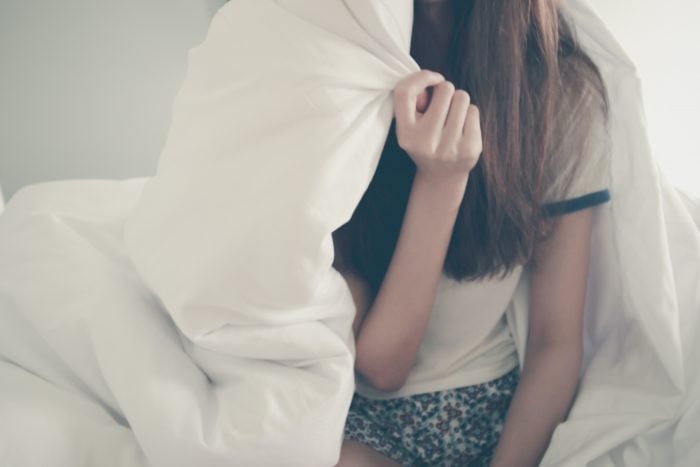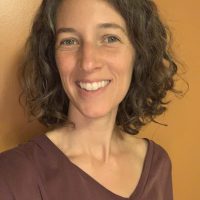My four-year-old is obsessed with board games. His favorite: “Chutes and Ladders.”
If you’ve ever played the game, you know the ever-looming threat of being sent backward on the board—of climbing up a ladder only to slip down an even longer slide.
Several mornings a week, my son pulls out the game, and I get to practice patience because oh my God, “Chutes and Ladders” again? And he gets to practice rolling with the punches, because even though he almost always wins (this kid is ridiculously lucky), he invariably experiences catastrophic setbacks along the way. He hates the purple slide (who doesn’t?).
He used to throw the board, the spinner, and the pieces when the setbacks felt like too much. Over time, my little guy’s response has softened to a slump of the shoulders, a pout of the lips, and a muted wail of “Nooooo!”
I get it. Really, I do. My whole life has felt like “Chutes and Ladders” these past three months—struggling with all my might upward, only to be hurled back down again.
It’s been more than three months since I first got sick with COVID-19, and I’m still battling a dizzying number of symptoms.
I am what they call one of the ‘long-haulers’—one among the thousands of COVID-19 patients who remain sick for months (perhaps longer) with a roller-coaster ride of complications. Today has been an exceptionally good day: just a rash, heart palpitations, dizziness, and sinus pressure. If I’m lucky, I’ll enjoy two, three, maybe even four more days like this before the next slide.
The slide always comes, though, dropping me into a ball pit of painful, debilitating—and at times, frightening—symptoms.
I used to crash emotionally when I crashed physically. If there had been a board and spinner to throw, I would have thrown them. I’m getting better at rolling with the punches, though. My shoulders may slump from time to time, and my lip may briefly pout, but the words that tumble out aren’t “Nooo,” they are “Okay, if I must” or “This too shall pass.” Impermanence, after all, is the point of the game. Why wail and stomp my feet over this or that slide, surprise, or situation?
That’s not to say that I’m passive in my recovery.
I hydrate like nobody’s business. I go to bed early. I keep a health journal and carefully watch for factors that may contribute to worsening symptoms. Sugar is out. Walking in hot weather is out. That second cup of coffee is out (unless I really, really want it bad). Do you know what else it out? Getting all worked up over the things I can’t do, the realities that I can’t change, the certainties that have been swept away.
The bit of control that I do have over my own life exists in this moment now—not in the past that is gone, not in the future that I can’t predict; right now.
Here is how I’m learning to stay present, grounded, and kind to myself for this long haul:
I view the setbacks as something that connects me with the whole of humanity.
I’m not the only one hurting, not the only one who has lost something I care about. My struggles seem small when I compare them to a 400-year struggle against oppression, the struggles of a family living in abject poverty, or the struggles of those who have lost loved ones to COVID-19. But regardless of the size or scope of my personal challenges, the experience of pain is something that connects me with literally every other human being.
When I’m struggling for breath, I soothe my own anxiety by thinking of the thousands of others who are struggling for breath in that same moment. I imagine breathing with them, for them.
When I’m overwhelmed by the uncertainty of whether or not I will recover, I remember that we are all lumped together in this uncertainty—that life was always uncertain, even if I previously failed to acknowledge that.
I pause to appreciate the people who have stepped up to support me, even while navigating their own uncertainties: the founders of online COVID-19 support groups, my parents, my step-mom, and my sister. A handful of close friends, and a handful of acquaintances-turned-friends. Sometimes caring, connection, and support pop up in unexpected places—for example, in the squeaky little voice of a four-year-old waking me up to ask, “Mama, awe you feewing wey-uh?” (Translation: “Mama, are you feeling well?”)
I keep a gratitude journal.
It’s easy to underestimate the abundance of the present moment if we don’t pause to look for it.
Connecting with the abundance that is already present, even in the hard moments, is the quickest path to joy. There is abundance in every single moment. Even when bedridden—especially when bedridden—I maintained my journaling practice. A few sample entries from those physically painful and challenging days:
>> Thank you for my comfy mattress and pillow, with which I’ve become so well-acquainted
>> Thank you for several days in a row of sunshine streaming through my window
>> Thank you for this topsy-turvy time. May I use it to become kinder, braver, more authentic, more creative, more giving, more present, more grateful, wiser, more in touch with what matters.
I go outside just to be outside.
I can’t run or rock climb right now, but I can still connect with the natural world. In fact, the necessity of moving very slowly gives me the opportunity to notice more, to be more present, to appreciate more of the beauty that’s right in my backyard. I used to sprint past the tinier wildflowers, missing them completely—missing the way they dance in the wind and the way raindrops collect in their delicate petals. I don’t sprint past anything anymore. Is this a tragedy or an opportunity? I’m choosing to treat it as the latter.
I sing just to sing.
I take deliciously hot showers, I pluck sugar snap peas from their vine and pop them right into my mouth. In other words, I’m connecting with my senses, with my body—with the sensory pleasures and joys that are possible even in tandem with pain and discomfort.
I’ve learned from past traumas how quickly I can disconnect from my own body. It would be nicer to not notice the tachycardia, the spike in my blood pressure, the throbbing in my head. It would be nice in some ways to disconnect from my physical experiences.
Instead, I’m diving in, inviting more physical experiences into my field of awareness. Even when my head throbs, I can hear the snap of the peapod as it crunches in my mouth. I can feel the tickle of the breeze against my skin. I can sigh with pleasure at the warmth of the sun. I can sing—caress myself with the sound of my own music.
Would I trade all of that in order to numb the uncomfortable aspects of my physical experience? Hell no.
I look for ways to help others.
I’m limited to helping from home and helping in ways that don’t require physical exertion. Since I love to write, this works out well for me! I write the newsletter for the Body Politic COVID-19 support group, and help to moderate group discussions. I write about my experiences with illness in the hopes of helping and inspiring others who are struggling through the same things. The gifts that I put out come back to me again. In moments when I’ve been low, readers have reached out to let me know that what I’ve written has helped them.
We are all in this for the long haul.
We all live and die in a world that plays out like Chutes and Ladders, with its sudden drops and unexpected climbs—its strokes of brilliant luck and catastrophic surprises. We are all in the up, down, back, forth, together, and apart of life. And life is defined by impermanence.
Once upon a time, I would have thought this an impossibly bleak ending for an article.
Impermanence!? You can’t leave your readers hanging like that! I don’t feel that way anymore. Because all this really means is that life is this moment now. And being present with life as it is right now, happens to be something that I’m getting better at.









Read 12 comments and reply